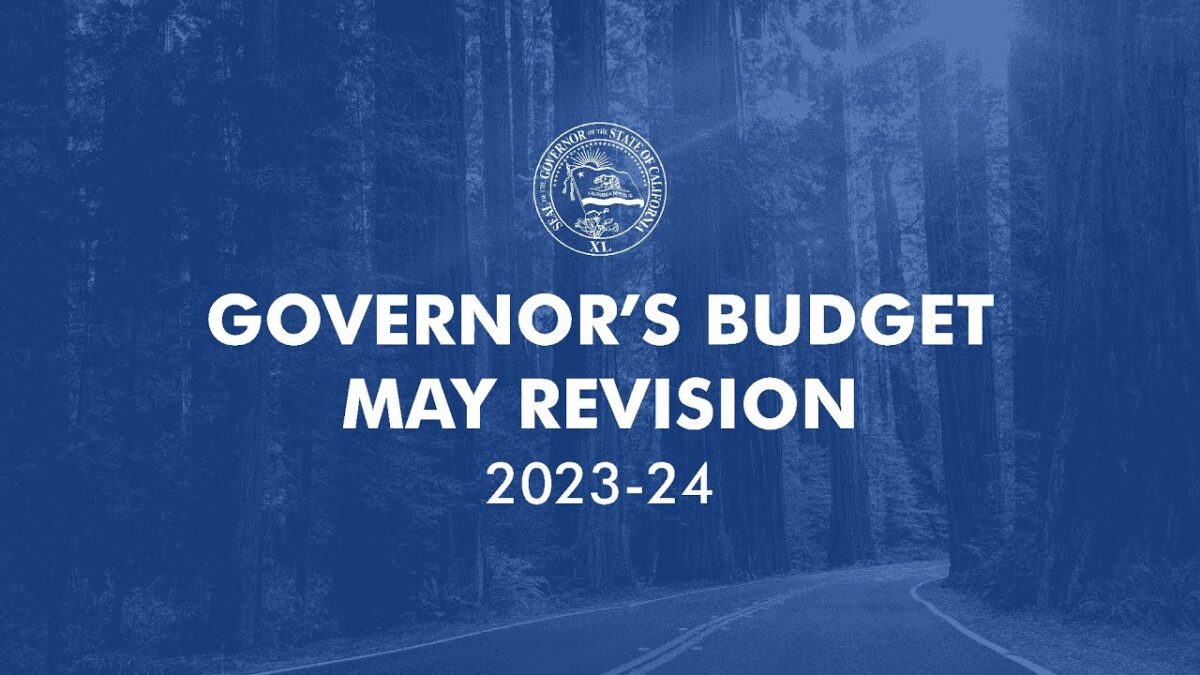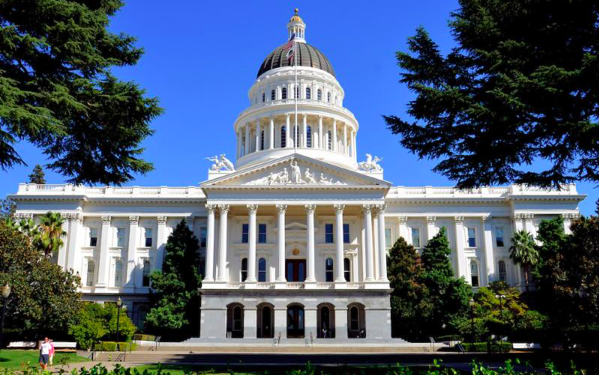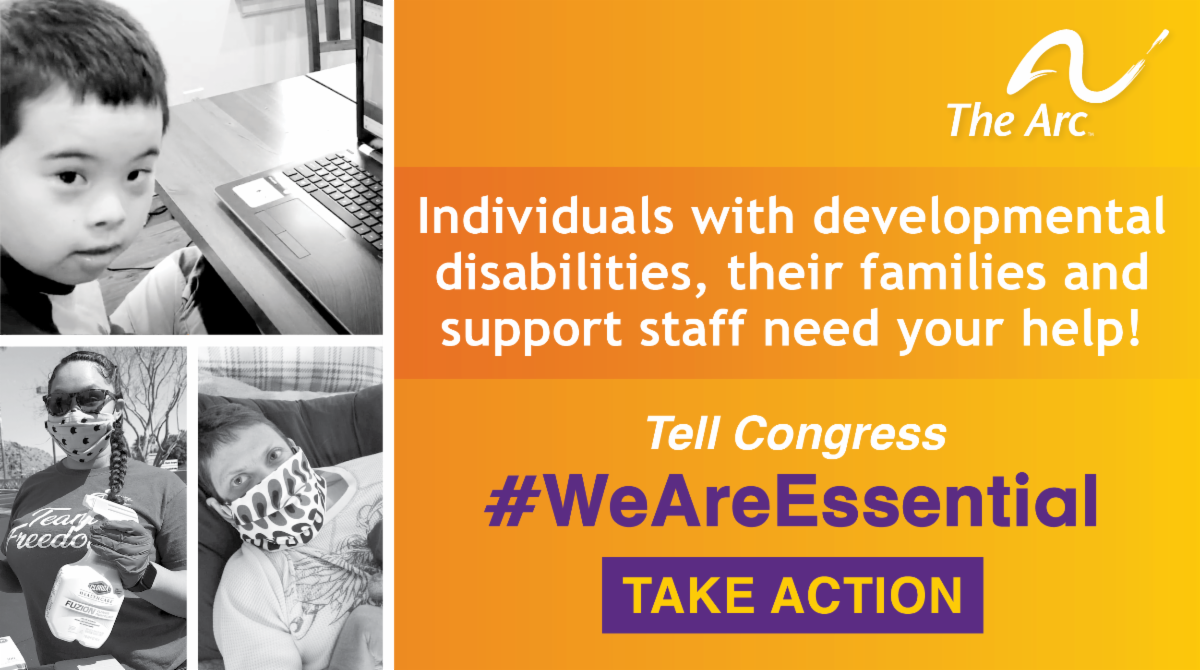May 14, 2020 – California Governor Gavin Newsom proposed his May Revise budget, which is an updated revision of his January budget proposal. As a result of the Covid-19 crisis, California’s revenue has plummeted from a $6 billion surplus in January to a projected deficit of $54 billion today. It is important to remember that this is only the Governor’s proposed budget, and it must now be debated in the state Legislature, where changes will happen and then a final budget will be sent to the Governor by June 15. The Governor’s Budget summary can be found here. A summary from the Department of Developmental Services (DDS) can be found here. The Arc of California’s summary of the impacts this budget will have on our community can be found here and is below:
Federal Funding Is Needed!
Governor Newsom made it painfully clear that unless Congress passes another stimulus bill to assist states, counties, and cities as they grapple with this health crisis then significant cuts to state services would be part of his solution. If, however, Congress passes a significant stimulus package – such as the HEROES Act or similar legislation – then many of the proposed cuts would NOT need to occur. The Arc of California strongly supports the HEROES Act, which includes funding and support specifically for the disability community, including:
- Dedicated funding for Medicaid home and community-based services (HCBS).
- Personal protective equipment (PPE) for direct support professionals.
- Paid leave for all caregivers.
- Economic impact payments for all people with disabilities.
Read The Arc’s summary of the HEROES Act here.
Regional Center Services
The Governor’s May Revise budget estimates regional center caseload growth from 348,187 in the current year to 366,353 in 2020-21, reflecting a decrease of 2,269 from the Governor’s January Budget due to Early Start caseload growth coming in lower than projected. The budget for community services is proposed to be $8.7 billion. Specific items include:
CUTS THAT WILL NOT HAPPEN IF WE GET FEDERAL FUNDING BY JULY 1:
- Rate Reductions, Expenditure, and Utilization Reviews—Adjust provider rates and review expenditure trends resulting in anticipated cut of $300 million General Fund in 2020-21. (This is approximately a 10% cut to community based services).
- $31.3 million cut by implementing the uniform furlough schedule, requiring consumers and families to go without community based services, and staff to be furloughed 14 days per year.
- Cost Sharing for Higher Income Families—Establish a cost-sharing program that would result in a cut of approximately $2 million General Fund in 2020-21 and $4 million ongoing.
- Regional Center Operations—A reduction to the operations budget for Regional Centers. This proposal results in a cut of $30 million General Fund in 2020-21 and $55 million ongoing.
THE FOLLOWING PROPOSALS ARE WITHDRAWN FROM THE GOVERNOR’S JANUARY BUDGET:
- Enhanced Performance Incentive Program—Would have aligned Regional Center performance contracts and require Regional Centers to meet an advanced tier of performance measures and outcomes to be eligible for an incentive payment. This results in a savings of $60 million General Fund in 2020-21, 2021-22 and 2022-23.
- Enhanced Caseload Ratios for Young Children—Would have reduced the regional center services coordinator caseload ratio for children who are three to five years old. This results in a savings of $11.8 million General Fund in 2020-21.
- Systemic, Therapeutic, Assessment, Resources and Treatment Training—Would have provided training and supportive services for individuals with co-occurring developmental disabilities and mental health needs. This results in a savings of $2.6 million General Fund in 2020-21.
- Provider Rate Adjustments—Would have provided supplemental rate increases for Early Start Specialized Therapeutic Services, Infant Development Programs and Independent Living services. This results in a savings of $10.8 million General Fund in 2020-21 and $21.6 million in 2021-22.
Developmental Centers
The number of residents in the remaining developmental centers is projected to increase from 302 in June 2020 to 322 in June 2021, due to increases in the secured treatment area of Porterville. Both Fairview and Porterville general treatment area are projected to have all residents moved out by June, 2020.
SSI/SSP
CUTS THAT WILL NOT HAPPEN IF WE GET FEDERAL FUNDING BY JULY 1:
The May Revision assumes an offset to the SSP grant that is equivalent to the amount of the federal January 2021 cost of living adjustment to the SSI portion of the grant. This proposal would result in a cut of $33.6 million General Fund in 2020-21, but no reduction in overall SSI/SSP grants received by recipients compared to the prior year.
CalFresh
There are no changes to the CalFresh program. The budget retains funding for both the Supplemental Nutrition Benefit and the Transitional Nutrition Benefit program which were created in 2018 to help households that lost federal SNAP benefits when SSI recipients were made eligible for SNAP.
IHSS
CUTS THAT WILL NOT HAPPEN IF WE GET FEDERAL FUNDING BY JULY 1:
- IHSS Service Hours—The May Revision assumes a 7-percent reduction in the number of hours provided to IHSS beneficiaries, effective January 1, 2021. This proposal would result in a cut of $205 million General Fund in 2020-21.
- County and Public Authority Administration—The May Revision freezes IHSS county administration funding at the 2019-20 level. This proposal would result in a cut of $12.2 million General Fund in 2020-21.
Healthcare (Medi-Cal, Dental, Therapies, ICF-DDs)
CUTS THAT WILL NOT HAPPEN IF WE GET FEDERAL FUNDING BY JULY 1:
- Adult Dental and Other Optional Benefits—The May Revision proposes to reduce adult dental benefits to the partial restoration levels of 2014. In addition, the May Revision proposes to eliminate audiology, incontinence creams and washes, speech therapy, optician/optical lab, podiatry, acupuncture, optometry, nurse anesthetists services, occupational and physical therapy, pharmacist services, screening, brief intervention and referral to treatments for opioids and other illicit drugs in Medi-Cal, and diabetes prevention program services, for a total General Fund cut of $54.7 million.
- Proposition 56 Adjustments—Beginning in 2020-21, the May Revision proposes to shift $1.2 billion in Proposition 56 funding from providing supplemental payments for ICF-DDs, physician, dental, family health services, developmental screenings, and non-emergency medical transportation, value-based payments, and loan repayments for physicians and dentists to support growth in the Medi-Cal program compared to 2016 Budget Act.
THE FOLLOWING PROPOSALS ARE WITHDRAWN FROM THE GOVERNOR’S JANUARY BUDGET:
- Elimination of the proposal for Full-Scope Medi-Cal to undocumented older adults.
- Elimination of the proposal for the expansion of Medi-Cal to aged, blind, and disabled individuals with incomes between 123 percent and 138 percent of the federal poverty level and it proposes not to implement the Aged, Blind, and Disabled Medicare Part B disregard
- Proposes to revert and reduce funding from various augmentations that were included in the 2019 Budget Act including:
– Behavioral health counselors in emergency departments
– Medi-Cal enrollment navigators
– Medical Interpreters Pilot Project
– Augmentation for caregiver resource centers
Special Education
In his presentation of the May Revision, Governor Newsom made special note that even in these very difficult financial times for the state, he is not backing down from his commitment to find solutions to and invest in our crisis in special education. The May Revision maintains the Administration’s commitment to increasing special education resources and improving special education financing, programs, and student outcomes. Specifically, the May Revision sustains the Governor’s Budget proposal to increase special education base rates, updated at May Revision to $645 per pupil (reflecting the suspension of the 2.31 percent cost-of-living adjustment), apportioned on a three-year rolling average of local educational agency ADA (allocated to Special Education Local Plan Areas). This new base rate represents a 15 percent increase in the Proposition 98 General Fund contribution to the base formula funding over the amount provided in the 2019 Budget Act.
As in the Governor’s Budget, the May Revision proposes that all other existing AB 602 special education categorical funding sources remain as in current law until a finalized formula is adopted.
Further, the May Revision includes $15 million federal Individuals with Disabilities Education Act (IDEA) funds for the Golden State Teacher Scholarship Program to increase the special education teacher pipeline, and $7 million federal IDEA funds to assist local educational agencies with developing regional alternative dispute resolution services and statewide mediation services for cases arising from the COVID-19 pandemic special education distance learning service delivery models.
Finally, the May Revision maintains funding for a study of the current special education governance and accountability structure, and two workgroups to study improved accountability for special education service delivery and student outcomes. The $1.1 million Proposition 98 General Fund used to fund these proposals is replaced with federal IDEA funds. An additional $600,000 federal IDEA funds is proposed for: (1) a workgroup to study the costs of out-of-home care, and how these services can be funded in a way that better aligns with the existing provision of these services, and (2) the development of an individualized education program addendum for distance learning.




